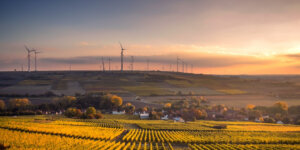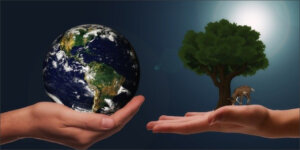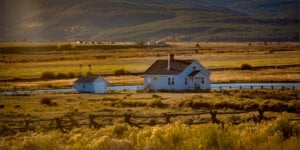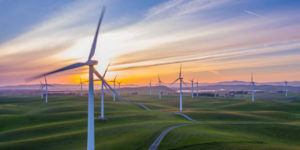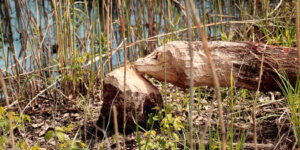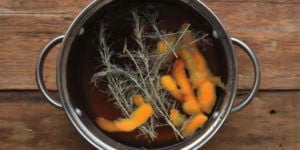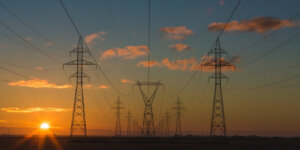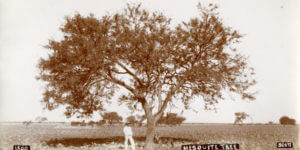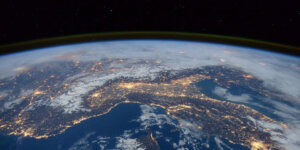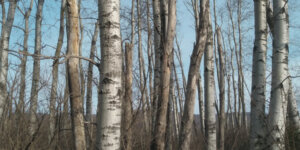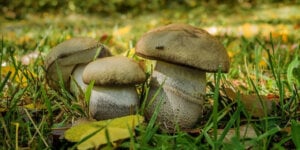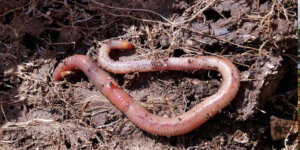Chelsea Green Blog
Nature & Environment
The Energy Consumption Crisis
At the rate humanity is currently burning fossil fuels, we will create an uninhabitable earth long before we run out. So if the pressure of a finite resource doesn’t push us towards a renewable energy revolution, what will? And what will this revolution look like? This is an excerpt from A Small Farm Future by Chris…
Read MoreHow Loving Labor Leads to a Brighter Future: Sourcing a Solution
Drawing on a vast range of sources from across a multitude of disciplines, A Small Farm Future analyses the complex forces that make societal change inevitable; explains how low-carbon, locally self-reliant agrarian communities and loving labor can empower us to successfully confront these changes head on; and explores the pathways for delivering this vision politically. Challenging…
Read MoreWhat Does a Sustainable Future Look Like?
In a time of looming uncertainties, what would a truly resilient society look like? Farmer and social scientist Chris Smaje argues that organizing society around small-scale farming offers the soundest, most sustainable, and most reasonable response to climate change and other crises of civilization—and will yield humanity’s best chance at survival. The following excerpt is…
Read MoreA Man, a Mission, and a Grumpy Beaver
Derek Gow knows a thing or two about beavers; as a farmer-turned-ecologist, he has spent close to 20 years reintroducing beavers to the wilds of Britain. Rewilding is no easy task, a large part of the process includes importing, quarantining, and assisting in the beavers’ reestablishment. And after so many years, Gow has met quite…
Read MoreBeavers: A Short History
If you’re not already a “Beaver Nut”, Derek Gow has a couple of reasons you should be: Firstly, land that housed beavers was historically preferred by British settlers for its natural abundance. Secondly, beavers show a lot of love and attention to their very cute babies. Finally, they’re crucial to the well being of our…
Read MoreAppetite For Construction
Have you ever wondered why beavers build dams the way they do? Believe it or not, there is actually a method to the madness. Similar to the motives behind why humans manipulate the environment the way they do, beavers employ a strategic plan when building their dams. The animals are “among our closest ecological and…
Read MoreBrewing California Sagebrush Beer: The Foraging Brewer
Hyperlocal brewing, making concoctions only out of the ingredients available in your immediate environment, is a fun way to become more familiar with your surroundings and the possibilities within them. According to wildcrafting author Pascal Baudar, “the number of possible ingredients you can use is mind boggling.” And the end results can be so rewarding! The…
Read MoreThe Spirit of Hitching
Gone are the days where you can stick out your thumb to catch a carefree ride. For a long time though, hitchhiking was considered normal and even reasonably safe. Even more, it gave people a chance to connect with strangers, share stories, and spend a bit of time in someone else’s shoes. While the days…
Read MoreEnter Biochar: Reduce Your Pet’s Carbon Pawprint
Many carbon-conscious pet owners are aware of the non-recyclable waste that comes with owning a pet. Between kitty litter, puppy pads, and all those plastic dog bags, the waste adds up. Enter biochar. Imagine a world where the puppy pad is so odorless that your dog wants to sleep on it and the kitty litter…
Read MoreThe 5 Rules of Lean Thinking
Surviving the Future is a story drawn from the fertile ground of the late David Fleming’s extraordinary Lean Logic: A Dictionary for the Future and How to Survive It. That hardback consists of four hundred and four interlinked dictionary entries, inviting readers to choose their own path through its radical vision. Fleming’s long-time collaborator Shaun Chamberlin…
Read MoreThe Power of the Mesquite Tree
The miraculous abundance provided by the mesquite tree continues to astound us. It offers a plethora of culinary possibilities. It has the power to cure, to shelter, to elicit profound emotions, and to connect us to our environment and our neighbors in a way we may not have thought about before. The following excerpt is…
Read MoreThe Man Who Planted Trees Before His Time
Though nature can be a mighty force, it takes great care and a gentle hand to support the growth of the environment–especially trees. Trees are essential for life; they create oxygen and are home to thousands of species, yet we’re experiencing rapid deforestation. It only takes one person to plant one tree in their community…
Read MoreEarth Day Reading: 13 Essential Books
This year, people all around the world are celebrating a milestone—the 50th anniversary of this international day of action for our environment. Why not celebrate Earth Day by reading about our great planet? We’ve compiled 13 books to get you started! In Courting the Wild Twin, Dr. Martin Shaw invites us to seek out our wild…
Read MoreA Dictionary for Our Times
How would you define the word “Empowered”? Before you run to the dictionary, we’re not talking about the straight definition; what we mean is, what does it mean to be empowered in today’s society. Read on for short extracts from Lean Logic that speak to these times of crisis. The following is an excerpt from…
Read MorePoplar – The Homemaker
Poplars are some of the fastest-growing trees in the world. They can tolerate the worst conditions and are heavily favored by wildlife. In places where land has been degraded or is falling apart, the poplars can rebuild. They produce tremendous amounts of biomass, feed unbelievable numbers of insects, birds, and mammals, and suck tons of…
Read MoreThe Secret Life of Fungi
Fungi have intricate lives, behaviors, and uses most people are unaware of. Mychorrizal fungi form symbiotic relationships with the root systems of other plants. The crucial, symbiotic role that fungi play in everything from healthy plants to healthy soils to a healthy planet. The following is an excerpt from Mycorrhizal Planet: How Symbiotic Fungi Work with Roots…
Read MoreFermentation 101: Just Add Salt
Fermentation isn’t just for highly skilled experts, at its core, fermentation is actually pretty simple. Once you’ve mastered the basics of fermentation, you’ll be on your way to creating delicious and unique dishes in no time! The following is an excerpt from Wildcrafted Fermentation by Pascal Baudar. It has been adapted for the web. For…
Read MoreWho Is the Wild Twin?
All of us have a wild twin––a part of ourselves that we generally shun or ignore to conform to societal norms. Inviting the wild twin back into our consciousness is crucial, for they have something important to tell us. The following is an excerpt from Courting the Wild Twin by Martin Shaw. It has been…
Read MoreVermicomposting: Why Venture Into It?
If you’re at all in tune to the agricultural news of late, you’re well aware that soil health is in decline all over the world – an issue that is having a disastrous impact on our food systems. The answer to this international problem? Worms. Lots of them. But how, you ask? Well, vermicomposting, of…
Read More

